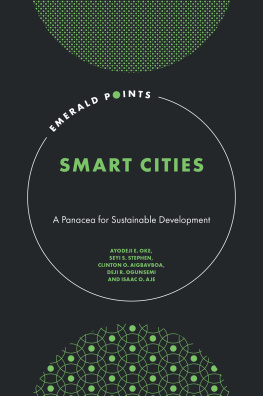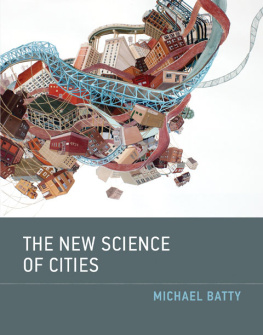Hermann Haken - Synergetic Cities: Information, Steady State and Phase Transition: Implications to Urban Scaling, Smart Cities and Planning (Springer Series in Synergetics)
Here you can read online Hermann Haken - Synergetic Cities: Information, Steady State and Phase Transition: Implications to Urban Scaling, Smart Cities and Planning (Springer Series in Synergetics) full text of the book (entire story) in english for free. Download pdf and epub, get meaning, cover and reviews about this ebook. year: 2021, publisher: Springer, genre: Politics. Description of the work, (preface) as well as reviews are available. Best literature library LitArk.com created for fans of good reading and offers a wide selection of genres:
Romance novel
Science fiction
Adventure
Detective
Science
History
Home and family
Prose
Art
Politics
Computer
Non-fiction
Religion
Business
Children
Humor
Choose a favorite category and find really read worthwhile books. Enjoy immersion in the world of imagination, feel the emotions of the characters or learn something new for yourself, make an fascinating discovery.
- Book:Synergetic Cities: Information, Steady State and Phase Transition: Implications to Urban Scaling, Smart Cities and Planning (Springer Series in Synergetics)
- Author:
- Publisher:Springer
- Genre:
- Year:2021
- Rating:3 / 5
- Favourites:Add to favourites
- Your mark:
Synergetic Cities: Information, Steady State and Phase Transition: Implications to Urban Scaling, Smart Cities and Planning (Springer Series in Synergetics): summary, description and annotation
We offer to read an annotation, description, summary or preface (depends on what the author of the book "Synergetic Cities: Information, Steady State and Phase Transition: Implications to Urban Scaling, Smart Cities and Planning (Springer Series in Synergetics)" wrote himself). If you haven't found the necessary information about the book — write in the comments, we will try to find it.
The book offers a novel approach to the study of the complex dynamics of cities. It is based on (1) Synergetics as a science of cooperation and selforganization, (2) information theory including semantic and pragmatic aspects, and optimization principles, (3) a theory of steady state maintenance, and of (4) phase transition, i.e. qualitative changes of structure or behavior.
From this novel theoretical vantage point, the book addresses particularly three issues that stand at the core of current discourse on cities: Urban Scaling, Smart Cities and City Planning.
Hermann Haken: author's other books
Who wrote Synergetic Cities: Information, Steady State and Phase Transition: Implications to Urban Scaling, Smart Cities and Planning (Springer Series in Synergetics)? Find out the surname, the name of the author of the book and a list of all author's works by series.












